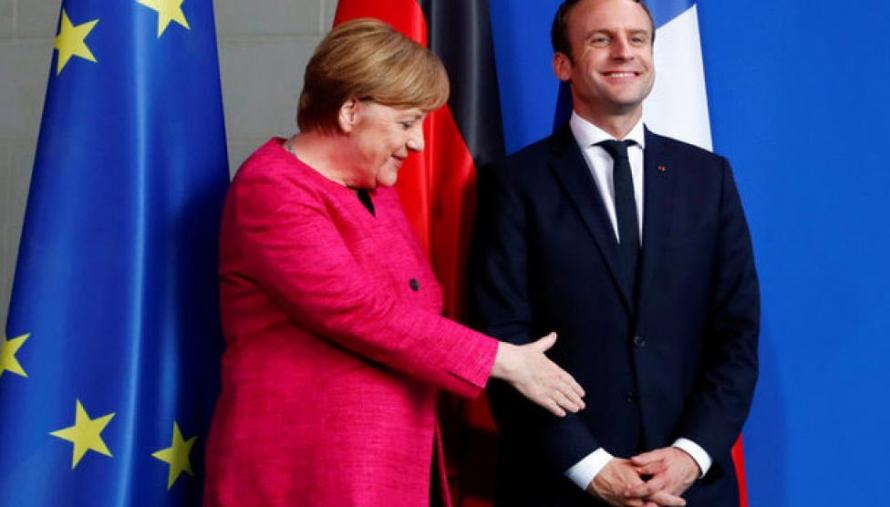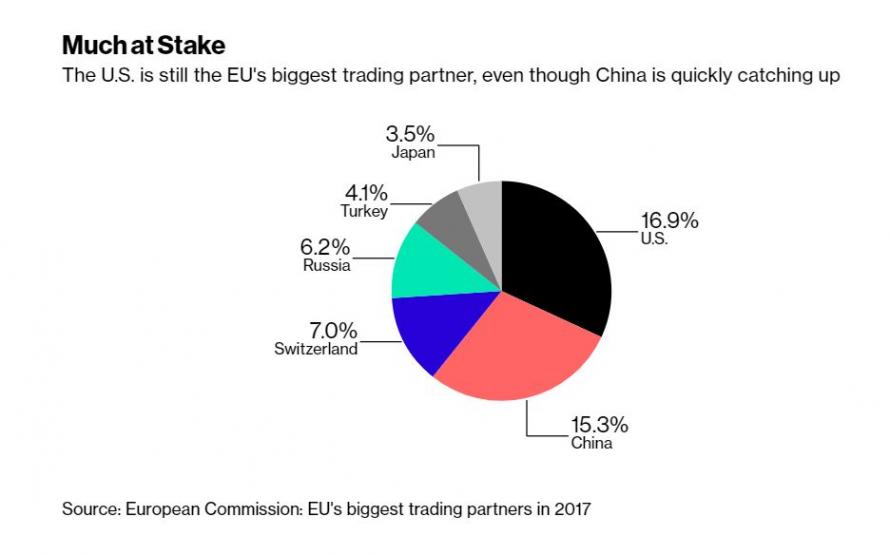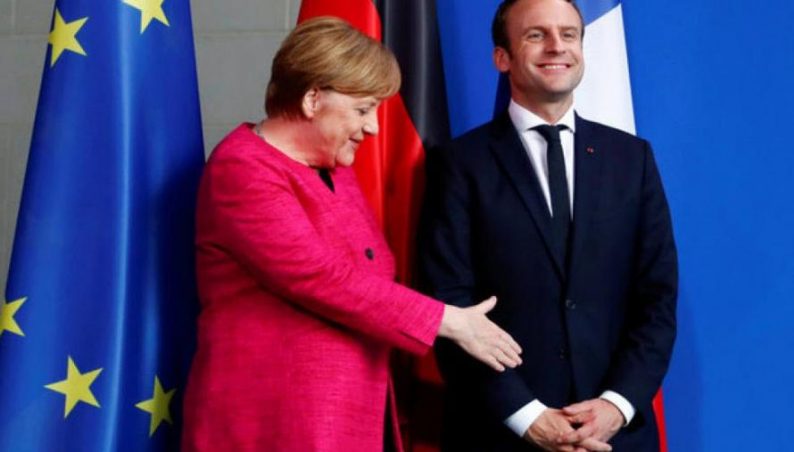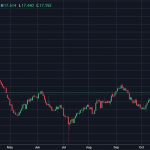With several weeks remaining until steel and aluminum tariffs introduced a few weeks ago by the Trump administration take effect, the US and its largest trading partners are mired in behind-the-scenes negotiations to strike a deal that could win them an exemption from some or all of the tariffs.
And while recent leaks have focused primarily on the talks between Treasury Secretary Steven Mnuchin,Trade Representative Robert Lighthizer and Chinese economy czar Liu He, Bloomberg today reported that there’s a growing rift between Germany and France regarding how they should respond to the US tariffs.

Germany is willing to offer the US some concessions to protect its export-led economy; however, other EU members – including France – believe the bloc should offer no concessions. The EU is still trying to work out a common response to the Trump tariffs.

At stake is a trade relationship worth some $640 billion in 2016. Germany is in favor of any EU deal covering new rules on tariffs for a series of products including cars, machinery, foodstuffs and pharmaceuticals. That stance is not shared by France, which wants to focus on pressuring China over issues such as subsidies and overcapacity in the steel industry.
Chancellor Angela Merkel and her government are already feeling out the German car industry and whether they might be able to convince it to support a reduction to the EU’s 10% tariff on auto imports. Carmakers reportedly responded positively to the idea.
“Dialogue with the US must continue at the highest political level,” the VDA German car industry body said in a statement when asked about the report. “We advocate sustainable and reliable agreements that are WTO-compliant. In the interests of fair and free trade, it is necessary to dismantle each other’s trade barriers and to agree a new framework.”
German Economy Minister Peter Altmaier, who met last week with US Commerce Secretary Wilbur Ross, recently told reporters that he hadn’t made an offer. He later denied reports that he pitched lowering auto tariffs.













Leave A Comment